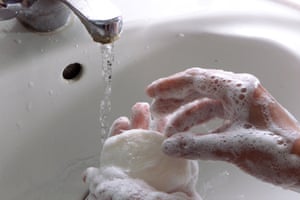Hundreds of hotels in Britain have failed their food hygiene inspections, including establishments with five- and four-star ratings and one with two AA rosettes.
In total, 652 hotels, guesthouses and B&Bs failed their latest food safety inspections for reasons including inspectors discovering seafood past its expiry date, raw meat stored next to sauces and high-risk food stored without temperature controls, according to a survey conducted by Which? Travel.
Included in this number were 19 hotels that were given a zero rating, the lowest possible score.
Among those with failing food hygiene scores was the five-star Royal Horseguards hotel in London and the four-star Novotel hotel in Birmingham, which were both given scores of two. The Novotel received the score for storing “high risk food … out of temperature control”.
The four-star Imperial Hotel in Norfolk, which in 2015 was awarded the Visit England Rose, recognising excellent service, and the Visit England breakfast award, was given a score of zero in October 2016, due to inspectors’ concerns relating to the production of liver paté on the site and lack of paperwork. The owner of the hotel, Nick Mobbs, said the hotel was due to be reinspected next month and he anticipated an improved score.
Other hotels with failing grades include the four-star Copthorne Hotel in Birmingham, which was given a score of one after inspectors found raw meat stored next to sauces and out-of-date seafood. Best Western’s Dean Court Hotel in York, which has two AA rosettes, was was given a food hygiene rating of one.
In England, Wales and Northern Ireland, the Food Standards Agency (FSA) ranks all food providers with a score of zero to five after an inspection conducted by officers from local authorities. Food safety officers consider the condition and structure of the building and record-keeping as well as how hygienically food is handled by staff.
A zero rating signifies that the establishment “urgently requires improvement”. Between zero and two is considered a failing grade, and three to five is satisfactory. In Scotland, businesses are given a score of either “pass” or “improvement required”.
Businesses are not required to display their food hygiene scores in England and Scotland. In November 2013, Wales made it mandatory for food establishments to publicly display their ratings, which led to a significant improvement in safety. This mandatory display policy was introduced in Northern Ireland on 7 October.
There were calls for the introduction of legislation requiring businesses to display their hygiene scores in England in September last year after a Guardian investigation found that one in seven takeaways had failed their most recent hygiene inspection.
“I’m certainly very supportive of introducing [a policy of mandatory display],” Clive Betts, Labour MP for Sheffield South East and chair of the community and local government select committee, said at the time. “What drives businesses is improving their profits and bad scores are going to turn customers away, so there will be a real incentive for businesses to improve their score.”
There is strong public support for a system by which businesses would be forced to display their food hygiene ratings. According to an NFU Mutual report into food hygiene ratings, 88% of people are in favour of a law that required the compulsory display of rating stickers and 73% of people would turn away and eat somewhere else if they saw that a business had a score of two or below.
“All food businesses, including hotels, should be able to achieve a the top food hygiene rating of five,” said a spokesman for the FSA. “The FSA remains committed to seeing the mandatory display of food hygiene ratings introduced in England. As the Which? study illustrates, mandatory display will be an added incentive for businesses with poorer standards to improve.”
Best Western said the Dean Court Hotel’s score of one out of five was due to “administrative oversight and clerical error”.
A spokeswoman said: “We are absolutely confident that the result had nothing to with the food hygiene standards of the hotel, of which they have always proudly scored the maximum of five out of five. The hotel is currently waiting for another inspection and has actively encouraged the York environmental health officer team to expedite this as soon as their resources allow.”
A spokeswoman for the Royal Horseguards Hotel said: “When the Food Safety Department of the City of Westminster City Council visited the hotel in March 2016 we took its findings very seriously. A new senior management team immediately took action to improve standards to the level our staff and customers expect. We also commissioned NSF, a global leader in health and safety, to conduct additional inspections in July and November 2016.
“These independent reports found significant improvements had been made by the new hotel team and described the kitchen as being ‘exceptionally clean and well-maintained’ during an unannounced audit.”
A spokesman for the Birmingham Copthorne said: “The safety of our guests, which naturally includes food safety, is our primary concern. A five food safety rating, which is what all Copthorne hotels aim to achieve, had been in place at Birmingham Copthorne for several years prior to a routine, unannounced environmental health inspection of the hotel’s kitchen on June 8 last year.
“The visit occurred at a time when standard processes had been disrupted temporarily by a change in the kitchen team. The general manager took immediate action to remedy the faults identified and requested a return visit by environmental health inspectors at the earliest opportunity, permissible under the food hygiene rating scheme rules, which would have been September 7, 2016. At the time of writing this, a formal visit has not yet been made.”
A spokesman for the Novotel Birmingham Centre hotel said: “We took immediate action to correct the issues raised from the inspection. We are currently in the process of applying for re-certification.”
Hundreds of UK hotels fail food hygiene inspections
